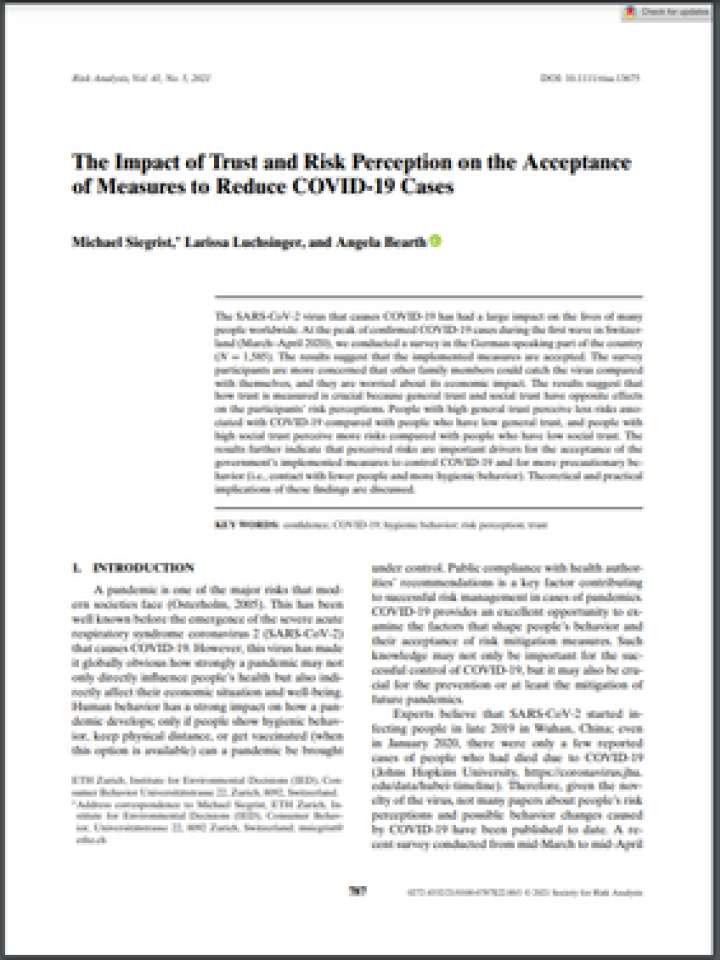The impact of trust and risk perception on the acceptance of measures to reduce COVID-19 cases
This study assesses how trust and risk perception impacted the acceptance of government imposed COVID-19 measures in German-speaking Switzerland. The SARS-CoV-2 virus that causes COVID-19 has had a large impact on the lives of many people worldwide. The study was conducted at the peak of confirmed COVID-19 cases during the first wave in Switzerland (March–April 2020).
The results suggest that the implemented measures were accepted. The survey participants are more concerned that other family members could catch the virus compared with themselves, and they are worried about its economic impact. The results suggest that how trust is measured is crucial because general trust and social trust have opposite effects on the participants’ risk perceptions. People with high general trust perceive less risks associated with COVID-19 compared with people who have low general trust, and people with high social trust perceive more risks compared with people who have low social trust. The results further indicate that perceived risks are important drivers for the acceptance of the government's implemented measures to control COVID-19 and for more precautionary behavior (i.e., contact with fewer people and more hygienic behavior).
Explore further
